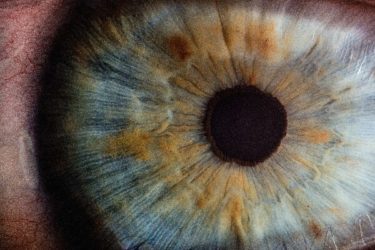We’ve all heard of the dangers that smoking poses to our health. Heart and lung diseases, diabetes and stroke to name just a few, but did you know about the link between smoking and cataract surgery? Join us as we look at the risks and dangers smoking can pose to your eye health while offering cataract guidance.

How does smoking affect your eyesight?
It isn’t a well-known fact, but smoking increases the risk factor of developing eye conditions. These are: Age related macular degeneration (AMD) and cataracts. If you develop AMD, you can expect loss of vision in the centre of your eye as the macular degenerates. Cataracts are the clouding of the eye’s lens.
Can smoking lead to vision loss?
Yes. Cigarette smoke can cause eye diseases that increase the risk of vision loss and blindness. The stats don’t lie: cigarette smokers are two to three times more likely to develop eye problems such as cataracts. They are also nearly four times more likely to develop AMD.
Symptoms of eye problems related to smoking
While smoking poses numerous health risks to other parts of the body, it can also have a detrimental effect on the eye. For example, tobacco smoke dehydrates the eye, and is a well-known eye irritant. It can make the eye feel scratchy and dry out the surface. The risk of dry eyes among smokers is double that of people who don’t smoke.
Among other eye-related symptoms of smoking is inflammation of the eyes. Due to the irritation caused by the smoke, blood vessels in the eye become swollen. When this occurs, they become more fragile and more prone to leaking fluid. This can cause retinal detachment, diabetic retinopathy, Dry Eye Syndrome, or a condition known as Uveitis which affects both the retina and iris. Uveitis can also lead to glaucoma or cataracts.
If you think you’re suffering from the signs of cataracts, please don’t hesitate to get in touch.
Does eyesight improve after quitting smoking?
While stopping smoking won’t improve your eyesight, there are many benefits to your eye health. For example, it will reduce the risk of needing cataract surgery. However, it will take over 10 years for this risk to reduce to the level of non-smokers.
Other benefits include people with AMD who have quit smoking. They will likely experience a slowing down in the progression of their condition. Without regular contact with smoke, the blood vessels in the eye are less likely to become inflamed. This reduces the risk of cataracts, retinal detachment, and Uveitis.
Can smoking cause cataracts?
Smoking doesn’t necessarily cause cataracts, but it does increase the risk of developing the condition. Studies have shown smokers are twice as likely to develop cataracts as non-smokers. They have also revealed the more cigarettes a person smokes, the greater that risk becomes.
How does smoking cause cataracts?
As mentioned previously, smoking doesn’t directly cause cataracts. It does however, greatly increase the risk of developing the condition.
Does smoking make cataracts worse?
Yes. If you’re already a smoker with cataracts, continuing to smoke will likely cause your condition to worsen at a faster rate.
How does smoking affect cataract surgery?
Your smoking status won’t impact a consultant’s decision on whether you qualify for cataract surgery. As always, continuing to smoke before and after surgery will have an impact on your health and recovery.
Can smokers have cataract surgery?
Yes. If a doctor or consultant deems it necessary, your status as a smoker will not impact your access to cataract surgery.
Is smoking before cataract surgery allowed?
Strictly speaking, smoking is permitted before cataract surgery, but eye doctors will advise against it. To reduce the risk of complications following surgery, patients are advised to quit smoking two to three weeks before cataract surgery.
How long before eye surgery should I stop smoking?
Patients are advised to quit smoking two to three weeks before surgery. This will reduce the risks of surgical complications during the procedure. It will also help to speed up the process if you stay smoke-free afterwards.
Can you smoke after cataract surgery?
As mentioned previously, smoking before and after cataract surgery can slow the healing process. This is because smoking decreases the body’s oxygen levels and restricts blood flow. These are both vital to recovery post-cataract surgery. Patients that continue to smoke after surgery also run a greater risk of developing infection.
How soon can I smoke after cataract surgery?
You can start smoking again as soon as you like, however your eye doctor will strongly advise against it. Smoking after cataract surgery increases your risk of infection and can prolong your recovery.
What happens if you smoke after eye surgery?
Smoking after cataract surgery will increase your risk of infection and other complications. It may also prolong your healing process and recovery. Your doctor will strongly advise against smoking after eye surgery.
Can I vape after cataract surgery?
As with smoking cigarettes, patients are strongly advised against vaping after cataract surgery. This is usually for several weeks after the surgery or until the eye is completely healed. Vaping can cause inflammation of the blood vessels in the eye which may slow the healing process.
Treating cataracts and other eye diseases
At Practice Plus Group, we offer fast access to high-quality cataract surgery and treatment via self-pay private healthcare, insured and NHS routes.
If you think that you or someone close to you is suffering from an eye condition, please don’t hesitate to get in touch.
Get help with quitting
If you’re thinking of ditching the cigarettes, the good news is there’s more support than ever before. From step-by-step plans to support groups, Stoptober features a raft of useful information and content. And it’s all aimed at helping you kick the habit for good.
Tips for stopping smoking
From dedicated apps to specialised plans, there really hasn’t been a better time to give up smoking. The NHS site has some great tips and advice, but if you’re looking for some quick guidance, you may find the following tips useful:
- Use smoking aids like nicotine patches
- Create a strong support network
- Set a date you want to have quit by
- Start exercising to mitigate potential weight gain from quitting
Resources and websites
The good news for ex-smokers is these days, there’s more support than ever before to help you stay smoke-free. With every Stoptober that comes around, the NHS proves a great resource to check out. It’s packed full of helpful content such as apps, articles, and plans all designed to help you kick the habit for good.
Stoptober and smoking
If you’re thinking of quitting smoking, Stoptober is a great time. Not only will your Christmas dinner taste even better with the recovery of your taste buds, quitting in October means you’ll have all the support that comes with Stoptober. Stoptober is an annual event aimed at getting smokers to avoid lighting up for 28 days. Stats show that people who manage 28 days without smoking are five times more likely to give up for good.




